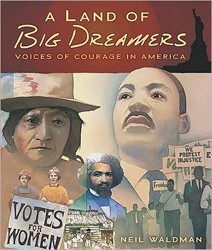By
– January 10, 2012
The story of StephanieSteiner, a thirteen-year-old Jewish girl who left her parents in Nazi-occupied Germany and went on the Kindertransport to live with a foster family on a remote islandoff the coast Sweden, continues in this sequel to A Faraway Island(Delacorte, 2009). Since there is onlyan elementary school on the island, Stephie successfully persuades her fosterparents to allow her to continue her studies by attending school on themainland, in the city of Goteborg. Shesecures a scholarship and arranges to live with the family who had rented herfoster parents’ island cottage for the summer. Excited to live and study in a big, cultured city, Stephie’s hopes arequickly dampened when she realizes that she is treated more like a boarder thanan adopted daughter. She has difficultymaking friends at her new school, faces anti-Semitism and prejudice fromclassmates, teachers, and even another Jewish student, and misses her youngersister, Nellie, who is still living on the island. At the same time, she is experiencing herfirst crush, on seventeen-year-old Sven, and is anxiously awaiting news from herparents who are still stranded in Vienna. Without whitewashing the war experience, Stephie’s story is easier todigest than other Holocaust fiction set in concentration camps or ghettos, andit will help readers better understand the effects of the immigration policiesof Allied countries like Sweden that refused to grant visas to adultrefugees. A smooth, straightforwardtranslation from Swedish, fully developed characters and a tender, absorbingstory make this a highly recommended addition to middle-grade fictioncollections. While the novel certainlystands on its own, readers should be directed to A Faraway Island,winner of the 2010 Mildred L. Batchelder Award and a Sydney Taylor Honor Award.They will anxiously await the translations of the third and fourth books in theseries. For ages 11 – 14.
Rachel Kamin has been a synagogue librarian and Jewish educator for over twenty-five years and has worked at North Suburban Synagogue Beth El in Highland Park, IL since 2008, currently serving as the Director of Lifelong Learning. A past chair of the Sydney Taylor Book Award Committee and past editor of Book Reviews for Children & Teens for the Association of Jewish Libraries News & Reviews, her articles and book reviews appear in numerous publications. She has been a member of the American Library Association’s Sophie Brody Book Award Committee since 2021.




